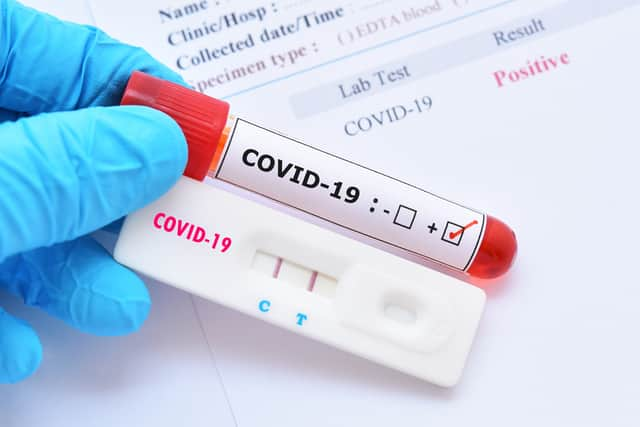How long after Covid exposure will you test positive? Incubation period explained, and when it’s contagious
and live on Freeview channel 276
If you are infected with Covid-19, how long could symptoms of the virus and a positive test result take to show?
Here’s what you need to know.
How long will it take for symptoms of Covid to show?
On average it takes five to six days from when someone is infected with the virus for symptoms to show, but it can take up to 14 days, according to the World Health Organisation (WHO).
Advertisement
Hide AdAdvertisement
Hide AdHowever, some people infected with Covid-19 don’t experience any symptoms of the virus.


What are the symptoms?
According to the NHS, the main symptoms of Covid are:
- a high temperature – this means you feel hot to touch on your chest or back
- a new, continuous cough – this means coughing a lot for more than an hour, or 3 or more coughing episodes in 24 hours (if you usually have a cough, it may be worse than usual)
- a loss or change to your sense of smell or taste – this means you’ve noticed you cannot smell or taste anything, or things smell or taste different to normal
If you have any of the main symptoms of Covid-19, even if they’re mild, you should:
- Get a PCR test to check if you have Covid-19 as soon as possible.
- Stay at home and do not have visitors (self-isolate) until you get your test result – only leave your home to have a test. Check if people you live with need to self-isolate.
How long does it take for a positive test result if infected with Covid?
According to Gavi, the Vaccine Alliance, studies have suggested that PCR tests start to detect RNA from SARS-CoV-2 (Covid-19), roughly one to three days before the onset of symptoms – similar to when people start to become infectious – with the highest viral loads observed during the first few days of symptoms (assuming the person is symptomatic).
From this point, the amount of virus then gradually declines, until it can no longer be detected by PCR.
Advertisement
Hide AdAdvertisement
Hide AdIn general, asymptomatic people may test positive for one to two weeks, while those with mild-to moderate disease often continue to test positive for a week or more after this.
Less sensitive lateral flow or rapid-antigen tests require a higher viral load to record a positive result, which is why they often only identify people during their most infectious period, according to Gavi.
When should I take a lateral flow test?
Covid tests are no longer free for most people, but some can still get free rapid lateral flow tests from the NHS.
You can get tests if:
- you have a health condition which means you’re eligible for Covid-19 treatments
- you’re going into hospital
- you work in the NHS or in adult social care
Comment Guidelines
National World encourages reader discussion on our stories. User feedback, insights and back-and-forth exchanges add a rich layer of context to reporting. Please review our Community Guidelines before commenting.
